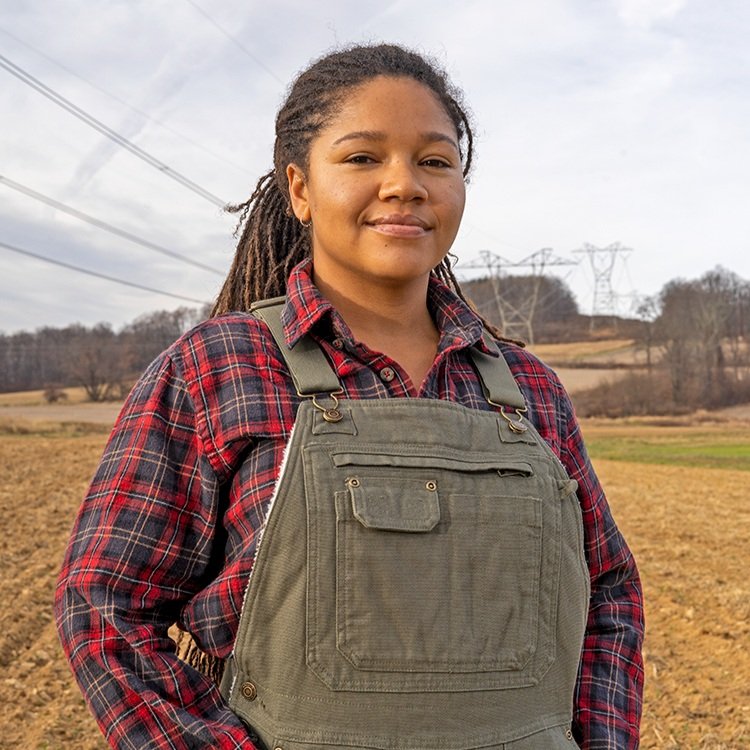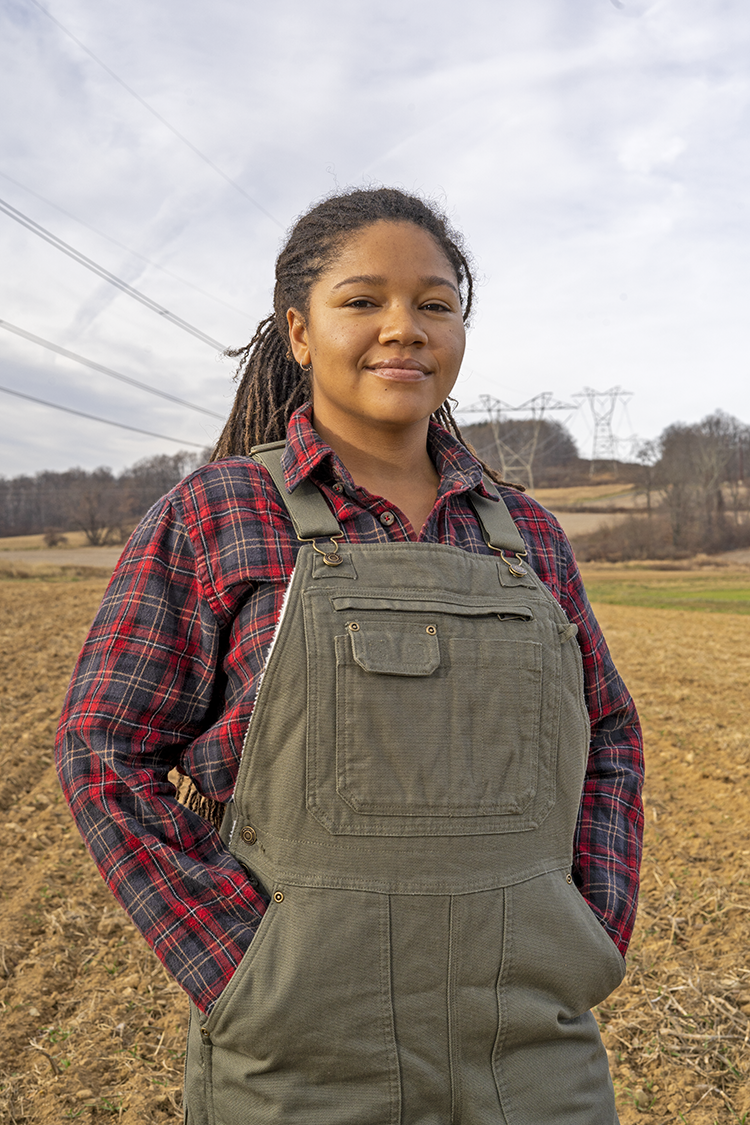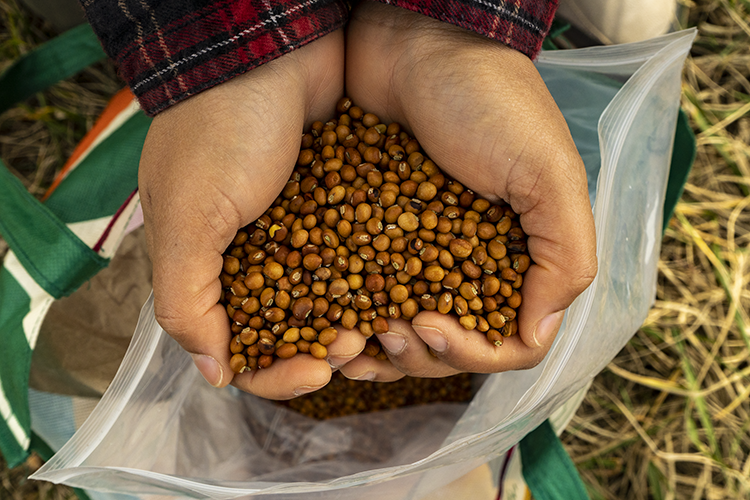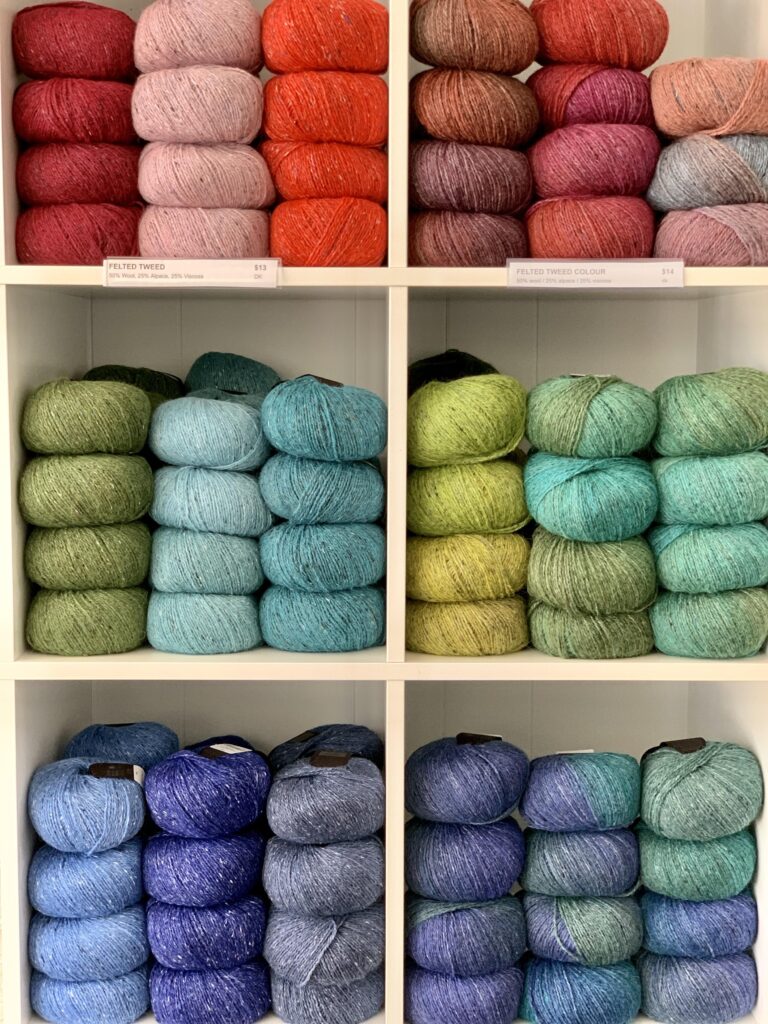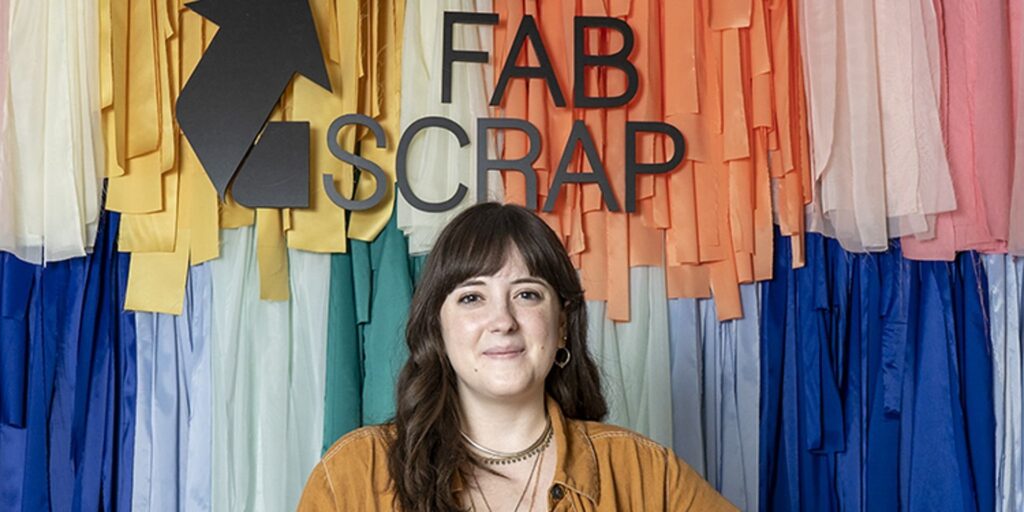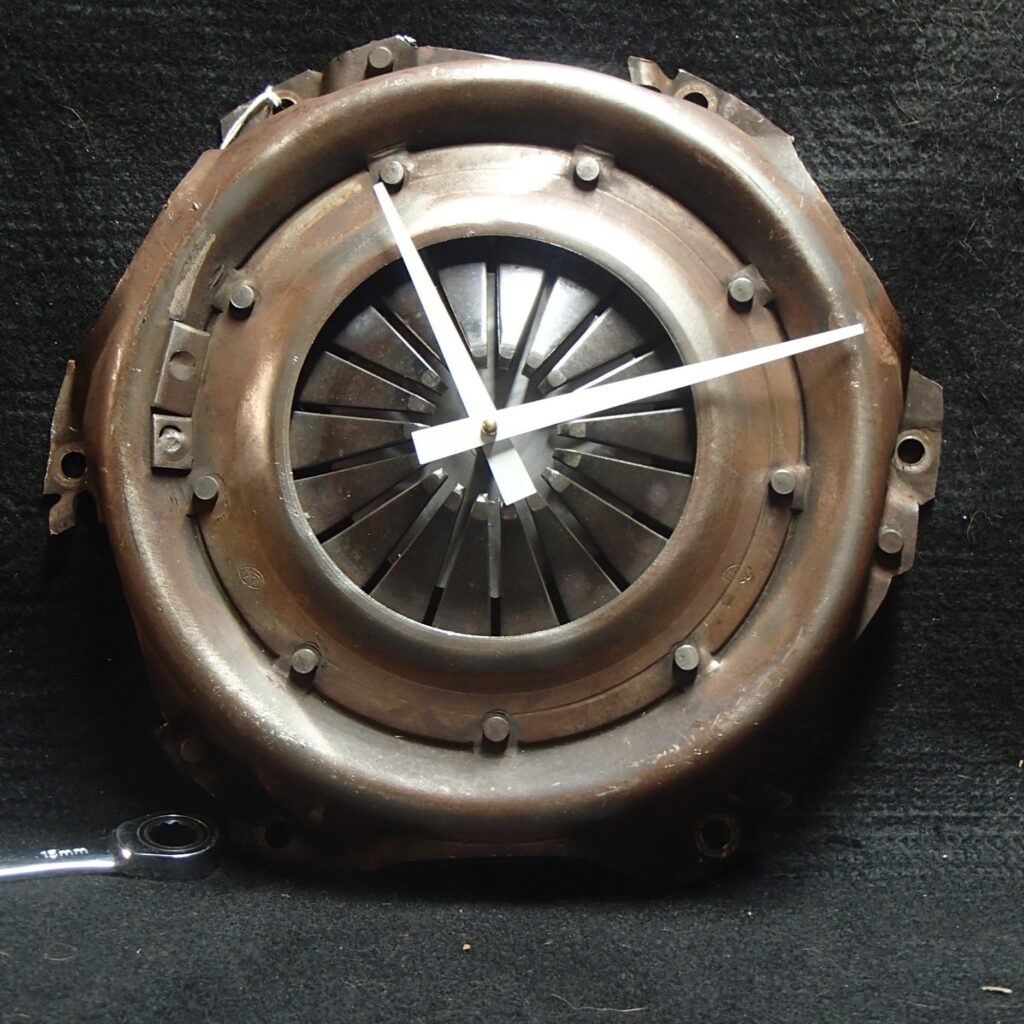Amirah Mitchell , founder of Sistah Seeds. Photography by Drew Dennis.
Ground Work
by Jenny Roberts
Amirah Mitchell has known she wanted to be a farmer since she was a 14-year-old intern with The Food Project, a Massachusetts-based nonprofit devoted to building sustainable food systems.
“That’s kind of when I caught the farming bug,” Mitchell, now 29, says. “Something about working with the land felt really healing for me.”
In her newest farming venture, Mitchell is creating her own enterprise called Sistah Seeds, focused on seed production of West African, Afro-Caribbean and African-American heirloom vegetables and grains.
“I think it’s important to reclaim those seeds for our own communities,” Mitchell says. “My goal is to really be supplying farmers of color with their seed needs.”
Mitchell is a former Fairmount resident who graduated from Temple University with a bachelor’s degree in horticulture in 2021. In order to start Sistah Seeds, Mitchell moved about 50 miles north of the city to the Lehigh Valley last month. There, she’ll produce crops at The Seed Farm, an incubator farm in Emmaus in Lehigh County, that offers a shared piece of farmland, rental equipment and a community of other farmers.
“My goal is to really be supplying farmers of color with their seed needs.”
— Amirah Mitchell, founder of Sistah Seeds
“I’m going to start with some crops that are really important to me,” Mitchell says. “And I’m then going to ask the farmers that I’m building community with what foods are important to them and grow those.”
In her farming, Mitchell will prioritize regenerative agricultural techniques, such as cover cropping and composting, with the goal of maintaining and rebuilding land health. And when it comes to her crop selection, Mitchell will focus on growing crops that are not common in a Johnny’s Selected Seeds catalog, she says. With Sistah Seeds, Mitchell will be looking to explore both wholesale and retail opportunities in the national seed market.
To get her business off the ground, Mitchell started a GoFundMe in October with the goal of raising $32,000 to cover startup costs, such as purchasing supplies and equipment, and to allow herself a small salary during her first year of farming.
“Seed farming actually requires that you wait almost a year until you can begin marketing the product,” she says. “So there’s a much longer wait to return on your investment.”
As of December, Mitchell surpassed her $32,000 goal, but people can continue to donate, she says. Additional funds will be put toward her second year of farming.
Owen Taylor, 40, cofounder of Truelove Seeds and Mitchell’s mentor, says Mitchell’s personality is well-suited for the business.
“Amirah is so focused on the way things work and the science behind the work and efficiency,” Taylor says. “When she’s on the farm, she has a lot of questions but also a lot of innovations.”
Truelove is an heirloom seed company based in Philadelphia, with a farm in Glen Mills, Delaware County. Mitchell started out at Truelove Seeds as an apprentice and has worked at the company for the past four years, learning the art and science of keeping seeds.
“She’s just one of the most driven and dedicated people who has come through our apprenticeship program,” Taylor says.
Mitchell also closed out her time in Philadelphia by working with Greensgrow Farms in Kensington and leading the urban farm’s fellowship program on seed keeping.
“Seed keeping is the practice of saving seeds from plants, along with the stories and cultural practices that accompany them,” Mitchell explains. “It differs from the act of seed saving, which is harvesting seeds from the plant, in that you are also preserving the stories, the traditions, the rituals, the foodways that accompany those seeds.”
Mitchell mentored eight fellows from throughout the city, teaching them about practical farming topics, such as botany and pollination. She also discussed the politics of seeds with the fellows and encouraged them to share stories about their familial connection to certain crops.
“Having the ability to mentor others and have them learn about seeds and gain that connection with their own cultural crop is really about just continuing that transfer of knowledge,” Mitchell says.
The fellowship ran from March to November 2021 and culminated in the creation of a seed library at Greengrow for the community to access seeds and share their own. Mitchell says there were many backgrounds represented in the fellowship, including Filipino, Korean and Jamaican ancestry. These cultures all informed the crops the fellows grew, she says.
Fellow Deja Morgan, 24, of West Philly, says seed keeping encouraged her to preserve her lineage as a Black person. Throughout the program, she learned more about her own family history, specifically that her great-grandfather was a talented rice grower.
“In agriculture, the histories of Black and Brown people are obviously washed away and people are not recognized,” Morgan says. “I just really appreciate that throughout this fellowship, [Mitchell] specifically made it a priority to make sure we were focusing on the stories and the histories and the legacies of the seeds we were growing.”
Morgan grew speckled brown butter beans, along with other crops, including bitter melon, which she grew alongside fellow Amanda Chan, 28, of Center City.
Chan says the fellowship allowed her to connect to her family’s Chinese culture and their passion for growing.
“I was sending pictures to my grandparents and my dad, and I was seeing that they got excited,” she says. “This is such a core joy for them.”
Mitchell herself has experienced greater connection to her family through growing cultural crops, she says, specifically the green striped cushaw squash that was also grown by her great-grandfather.
“That is a crop that I will always continue to grow for that reason,” Mitchell explains, “because it’s part of my family story.”
Mitchell will grow the cushaw, as well as watermelon, okra, collard greens and black eyed peas in Emmaus.
While the road to harvesting seeds from these vegetables will be long, Mitchell says she enjoys the journey.
“I love having to exercise grit and perseverance in order to manifest something as wonderful as a seed.”
To learn more or donate, Google “sistah seeds gofundme.”


